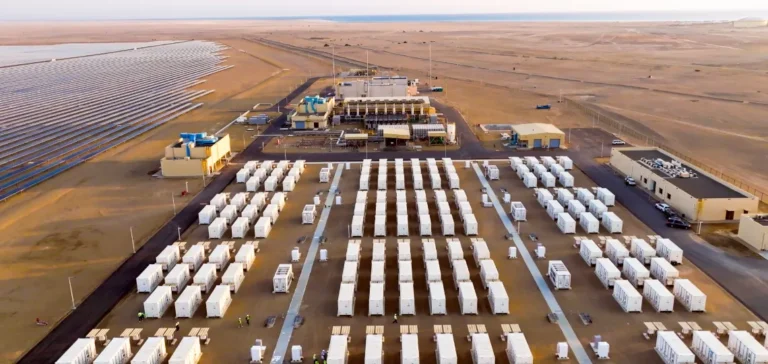The Public Establishment for the Transmission and Distribution of Electricity (PETDE) in Syria has signed agreements with Saudi companies Al-Harfi and SCLCO to develop solar and wind power projects with a combined capacity of up to 500 megawatts. These projects are part of the Syrian government’s efforts to stabilise national electricity production.
The agreements, which include memoranda of understanding and power purchase agreements (PPAs), were signed in the presence of Syria’s Deputy Minister of Energy for Electricity Affairs, Omar Shaqrour, and Saudi Deputy Minister for Renewable Energy, Abdulaziz bin Khalid Al-Yousef.
Projects led by Saudi companies
SCLCO, an industrial and contracting firm active in Saudi Arabia, Jordan and Egypt, will oversee the development of 100 megawatts of the total planned capacity. No information has been released regarding the remaining allocation between the partners or the precise locations of the installations.
This initiative follows an earlier agreement between Riyadh-based energy developer ACWA Power and the Syrian Ministry of Energy. That agreement focuses on assessing the feasibility of solar power plants and battery storage systems totalling up to 1,000 MW, alongside wind projects reaching 1,500 MW.
Energy ties strengthening across Arab states and Damascus
In September, PETDE also signed a contract with Manaret Shahbaa to build a 100 MW solar power plant in central Syria. Technical specifications and a timeline for the project have not yet been disclosed.
In parallel, Qatar is increasing its role in Syria’s energy reconstruction. A consortium led by UCC Holding plans to develop a 1-gigawatt solar plant in the southern part of the country. The project is part of a broader agreement valued at $7 billion signed with local authorities.
Regional cooperation in energy infrastructure
These commitments indicate growing interest in energy partnerships with Syria, as the country works to revive its power grid. The agreements signed could mark the beginning of a more structured regional cooperation in energy infrastructure.






















